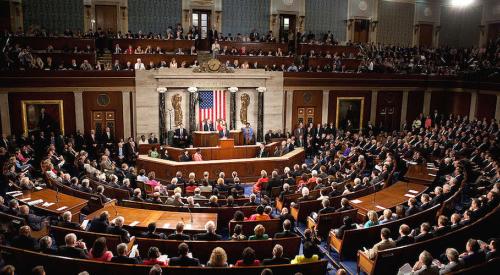The mortgage-interest deduction, a pillar of the nation’s long-held support for housing and the American Dream, is under assault, say NAHB observers who make it their full-time job to stay on top of the shifts in thinking in Washington.
According to NAHB chief lobbyist Joe Stanton, the mortgage-interest deduction is in the mix this spring as a new Congress meets for the first time and begins wrestling with ideas for reducing the deficit. Some economists estimate that removal of the mortgage-interest deduction would lower home values another 15 percent. With this in mind, Professional Builder met with Stanton to sort out the legislative landscape as it applies to housing.
PB: The deficit reduction committee came out with a recommendation that we do-away with the mortgage-interest deduction. Is something as dramatic as this possible?
Joe Stanton: Yes. I think anything is possible. The election we just had is all about the deficit and the debt we have taken on. The fact of the matter is that the mortgage-interest deduction cost the government about $104 billion this year. That being said, we will vigorously fight any attempt to reduce or eliminate it. We do believe that the mortgage-interest deduction has opened up the opportunity for people to be homeowners and has made homeownership more accessible and affordable than before. So we will continue that fight. Not only that, but any other of the slew of recommendations that the commission put forth — second homes, home equity lines of credit, and property taxes. So we are going to have this on all fronts.
PB: I have heard that the second-home deductions are more vulnerable than the deduction for mortgages on primary residences. How likely is it that we will see these items get taken away from homeowners?
JS: I think primary residences will be preserved. It really depends on the dollars associated with each item. So if you go into second homes, you think of your beach house or your cabin. Obviously, we have looked at coalition building, certainly with the Realtors. And home equity impacts not only the remodeling industry but certainly the way the law is written that there are other uses. People use it for their car, the auto industry. People use it to help defer costs for college. That is what buying the home was meant to do. That is your largest purchase ever. You build up equity in your house, and that is what it is there for.
PB: Beyond preserving the mortgage-interest deduction, what are some of the legislative priorities of the NAHB right now?
JS: As we get into next year I believe that the president will put forth his GSE reform legislation (Government Sponsored Entities, specifically Fannie Mae and Freddie Mac). We, the NAHB, believe that the GSEs do provide liquidity into the market. It is just not there for the consumer. Are there going to have to be changes? Sure. There needs to be some sort of public/private partnership with the government providing backing for situations like what we have just been through, something catastrophic. The hearings will start right away on GSE. The administration is certainly keen on tax reform. And we will see how the president comes out on the tax reform. Certainly he has shown that he is willing to cut a deal. And you can interpret the reasons why. He is probably looking forward two years already to his re-election bid.
PB: When you look at the GSE situation, is the goal to reduce our liability as a nation or to increase liquidity in the housing market?
JS: I think it is a little bit of a balance of both. I think the standards of getting a mortgage will be addressed. I think we would all agree that it was pretty easy to get a mortgage five years ago and some people should not have been allowed to get them. I think certainly the pendulum has swung all the way to the opposite side. Now you can have a good credit score, but you cannot manage to re-finance. The huge problem that our guys have is that there is zero on acquisition, development, and construction loans (ADC). I am not saying that every project is a good project, but we know great projects where the bankers just say no.
PB: Are regulators saying to the bankers, ‘Hey, you cannot take on real estate loans right now?’
JS: That is probably the most frustrating thing not only for us at NAHB but for our members. Builders will have local meetings with local regulators and get the response that, ‘Washington is telling us that we cannot do this.’ So we bring our builders here to Washington to meet with our regulators here in town and their response is: ‘We’re not telling anybody they can’t loan money.’ So they will go back and forth with each other, and the simple truth is that it is clear that they are not lending money. And my personal belief is that they have been told not to lend in this environment.
PB: And that seems like a problem that could be solved through the FDIC or something like that?
JS: Absolutely. We have gone to Sheila Bair (chairman of the FDIC). I don’t know how many times we have gone through this over the past two years. This was the highlight of our legislative conference two years ago. We had a letter up to Secretary Geitner signed by 80 members of congress saying that this is a problem. And it is still a problem. It is a worse problem now.













